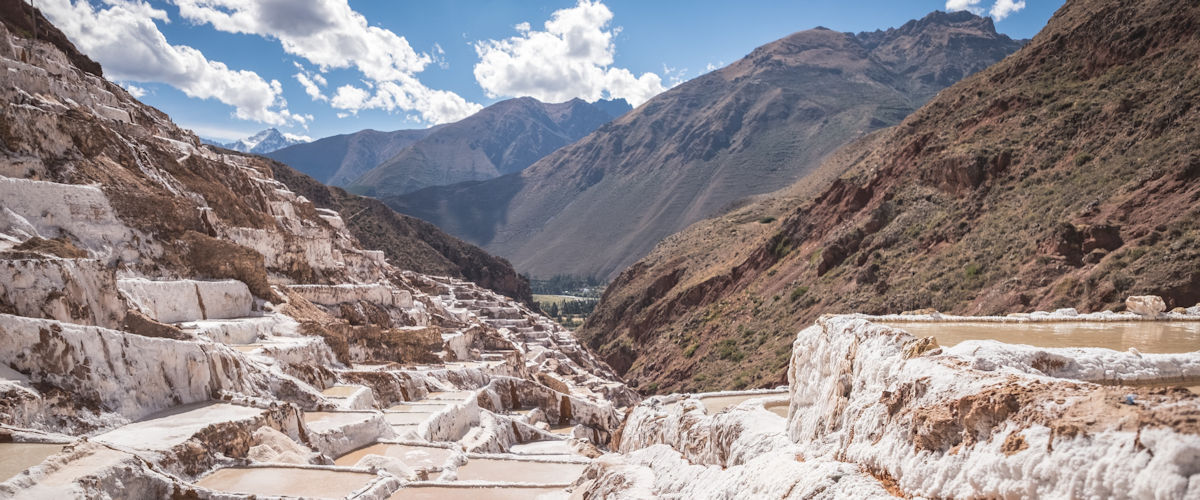
Workshop: The Natural Resources Economy in South America: Extraction, Sustainability and Citizenship
Event details
Latin America benefited from huge rises in the prices of natural resources in the first part of the twenty first century, which reshaped the region’s political economy and underpinned new forms of social expenditure. Despite huge windfall profits, the political, social and economic relations surrounding natural resource extraction have been conflictual and contentious and the environmental costs have been considerable. Exploitation has intensified environmental degradation and led to disputes over ownership of land and land use. As global demand falls, the risks of environmental degradation and conflict over resources, land use, taxation, and welfare increase. It is time to begin the task of evaluating the legacies of the natural resources boom, identify its legacies, examine how they continue to reverberate and shape the region’s politics, political economy, ecology and environment. This workshop brings together some key contributors to recent debates in order to consider these issues and identify directions for future research.
The workshop draws directly on a GCRF-funded project, led by IGDC, on resource extraction in Argentina. This project, led by Jean Grugel, Alejandro Peña and María Eugenia Giraudo, focuses on the political-economic and environmental impacts in two distinct cases: the production of soybean across the La Plata River Basin and the more recent lithium exploitation in North Argentina, in collaboration with Universidad Di Tella, Buenos Aires. Expansion of both soybean and lithium has taken place against the backdrop of a gathering political and economic crisis that is emblematic of region-wide trends and raises conceptual and practical questions with immediate and future implications for wellbeing, livelihoods and sustainability.
Understanding the natural resources boom, in Argentina and the region more generally, requires taking a long term perspective on development cycles, environmental governance and state-citizen relationships, as well as research on the commodity boom and the challenges that now face the region as global prices fall. For that reason, we also hope to draw here on the rich, interdisciplinary scholarship and activism that has emerged on Latin American political economy and natural resources over more than a decade. These debates have reinvigorated the study of the region, and, in particular, discussions about the contested phenomenon of ‘post-neoliberalism’, land use, community organisation, resistance and social protest, and the politics of indigeneity. Our hope is that, by the end of the workshop, we will have come together in identifying the research questions that will shape the next generation of natural resources scholarship in the region.
Preliminary Programme
Monday 8th July
|
9.30hs. |
Registration & Coffee |
|
10.00hs. |
Welcome. Prof. Jean Grugel, University of York |
|
10.15hs. - 11.30hs. |
Panel I: Political Economies of Natural Resource Production i. Lithium exploitation in North Argentina Alejandro Peña, University of York ii. Soybean production in La Plata River Basin Maria Eugenia Giraudo, University of York iii. Local economic effects of mining in comparative and regional perspective Juan Pablo Rud, Royal Holloway, University of London Chair: Ingrid Harvold Kvangraven, University of York |
|
11.30hs. - 11.45hs. |
Coffee break |
|
11.45hs. - 12.45hs. |
Panel II: Land, Urban spaces, and Natural Resources Governance ii. Emerging urban spaces and alternatives to extractivism in Bolivia Phillipp Horn, University of Sheffield iii. Implementing Multiculturalism: The Governance of Indigenous Land Claims in Argentina Matthias vom Hau, Institut Barcelona Estudis Internacionals (IBEI) Chair: Eleanor Jew, University of York |
|
12.45hs. - 13.45hs. |
Lunch |
|
13.45hs. - 14.00hs. |
Panel III: Civil society partners: Wetlands International Daniel Blanco, Wetlands International Argentina Discussant: Karen Siegel, University of Glasgow Chair: Steve Pueppke, Michigan State University |
|
14.00-15.00 |
SDGs and Natural Resource Extraction i. Politics and agenda-setting in the implementation of the SDGs: The case of agriculture and land use in South America Karen Siegel, University of Glasgow ii. The UN Sustainable Development Goals (SDGs) and civil society: challenging extractivism in Bolivia. Jessica Hope, University of Bristol Chair: Phil Roberts, University of York |
|
15.00hs. - 15.30hs. |
Coffee break |
|
15.30hs. - 16.30hs. |
Roundtable: Democracy, Accountability, and Legitimacy of Extraction Alejandro Pelfini, FLACSO Argentina Pia Riggirozzi, University of Southampton Philipp Horn, University of Sheffield Eleanor Jew, University of York Chair: Andrea Bianculli, Institut Barcelona Estudis Internacionals (IBEI), Visiting Scholar at IGDC |
Tuesday 9th July
|
9.15hs. - 10.15hs. |
Panel IV: Citizenship and Natural Resource Extraction i. Indigenous peoples and hydrocarbon citizenship in the Bolivian Chaco Penelope Anthias, University of Durham. iii. A Game of Drones: Technology, Indigeneity and Scientific Citizenship in the Amazon Murat Arsel, International Institute of Social Studies (ISS) Chair: Karen Siegel, University of Glasgow |
|
10.15hs. - 10.30hs. |
Coffee break |
|
10.30hs. - 11.30hs. |
Panel V: Governance and Natural Resource Extraction i. State-owned Enterprises and the Politics of Innovation in a Globalized Value Chain: The Case of Natural Resource-led Development in Latin America Jojo Nem Singh, Leiden University iii. The Agrarian Question of Circulation: Chile and the Logistics Revolution in Agriculture Tom Purcell, Leeds Beckett University & Martin Arboleda, Harvard GSD Urban Theory Lab iii. Facing the Future: the legacies of postneoliberalism. Pia Riggirozzi, University of Southampton & Jean Grugel, University of York Chair: Maria Eugenia Giraudo, University of York |
|
11.30hs. - 12.45hs. |
Roundtable: Priorities for Future Research Daniel Blanco, Wetlands International Argentina Penelope Anthias, Durham University Juan Grigera, King’s College London Jean Grugel, University of York Chair: Matthias vom Hau, IBEI |
Contact
Maria-Eugenia Giraudo